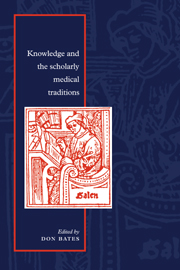16 - AMOS FUNKENSTEIN
Published online by Cambridge University Press: 01 February 2010
Summary
Someone spoke of our endeavour as building a house in which the foundation is solid. But perhaps it's more like repairing a ship while at sea, where the foundation is not all solid but somehow it floats. And indeed, the whole foundation of what we tried to do, namely, to compare cultures, to compare bodies of knowledge, is, I would say, very flimsy, very unsafe, very uncertain both from a philosophical vantage point but also from a historian's vantage point.
First, there is the perennial problem that, when we compare two bodies of knowledge – say Indian, Chinese, Western medicine or within the Western tradition, medieval, early modern, Greek, Arabic – what is it precisely that we compare? Furthermore – and this is a philosophical question – is comparison logically possible? How do we safeguard the objectivity or vantage point for such a comparison? And do we have to give up the claim for truth if we relativize radically?
Now this logical problem of comparison is that if you compare the theories of science, or the periods of science, and even more so if you compare the very disparate bodies of knowledge, there is the question of commensurability. How do you translate a term, an observation, any item of one theory to the other? How do you translate from one language into another, from one system or concept to another? Is such a translation at all possible? Can one look for similarities?
These are questions of principle and you may argue that such translations are a priori impossible.
- Type
- Chapter
- Information
- Knowledge and the Scholarly Medical Traditions , pp. 347 - 354Publisher: Cambridge University PressPrint publication year: 1995



